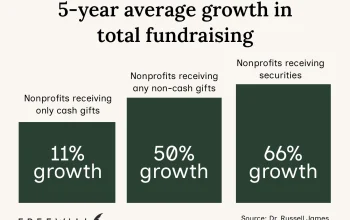Are You Wanting to Increase Business Efficiency with Cloud Accounting Solutions? It offers numerous advantages over traditional accounting methods, including automation and real-time access to financial data, streamlining business processes and cutting administrative expenses.
Selecting the appropriate cloud accounting software depends on your company size and individual needs. When making this selection, prioritize scalability and flexibility as key criteria, in addition to backup solutions and data security features.
Real-time access to financial data
Cloud accounting solutions give businesses access to real-time financial data that allows them to make quick, informed decisions as well as identify and respond quickly to market shifts.
Automated processes, streamlined workflows and AI integration make this possible, eliminating manual errors while giving businesses a competitive advantage. Their cost-effectiveness and scalability make them a fantastic solution for small businesses.
Cloud accounting software also offers improved security, as its providers regularly implement updated security measures to shield sensitive information from cyber threats and regularly back up data for peace of mind. By relieving staff of administrative tasks and increasing recruitment appeal by permitting remote work arrangements, cloud accounting software reduces staff workload while freeing them up for more productive endeavors and recruitment appeal.
Scalability
Real-time financial data provides businesses with a powerful advantage in making informed decisions quickly. By tracking revenue, expenses, and cash flow they can identify trends or anomalies promptly and make adjustments accordingly to improve forecasting accuracy while remaining competitive in today’s fast-paced business environment.
Cloud accounting solutions can be accessed remotely with an internet connection, making cloud accounting accessible from any location without installing local software or hiring IT staff. Furthermore, its subscription-based model means companies can save money by forgoing upfront licensing costs and ongoing maintenance fees.
Cloud accounting not only offers increased scalability but also enhanced security through encryption technology that ensures only authorized users can access information. This can help safeguard against data breaches that often occur with traditional software systems.
Automation
Cloud accounting allows businesses to automate repetitive tasks and allow employees to focus more strategically, improving efficiency and competitive advantage as well as saving both time and money by eliminating manual processes.
Cloud-based accounting differs significantly from traditional methods in that instead of storing records physically and manually distributing them to investors and lenders manually, they enable companies to securely share financial reports online with others in an easy and timely fashion. They even connect to bank accounts to import and reconcile data automatically resulting in faster and more accurate processes.
Cloud accounting providers typically employ teams dedicated to monitoring and responding to security threats, which increases data protection while decreasing hardware failure risks and staff time spent manually installing updates and patches.
Flexibility
Cloud accounting systems operate over the internet on secure remote servers and offer comprehensive solutions that include workflow automation and elimination of manual data entry – thus reducing risks while speeding up financial close processes.
Cloud accounting systems allow authorized users to gain access to real-time financial data from any location, eliminating outdated reports and providing an all-encompassing view of vital business data across departments.
Cloud accounting solutions may also offer automatic bank feeds and reconciliation, streamlining bookkeeping while streamlining banking processes. This feature automates tedious tasks to save time and increase accuracy – an attractive feature suitable for small businesses and accounting firms alike.
Security
Modern cloud accounting solutions feature numerous security measures designed to protect private company data. Two-factor authentication requires users to authenticate themselves using another method such as text message codes or biometric scans; this prevents unauthorized access and mitigates breach risks while decreasing financial liability.
Cloud software requires lower upfront infrastructure costs than traditional systems, helping reduce business operating expenses and maintenance expenses. By outsourcing their hardware and software updates through cloud providers, companies can save costs of service delivery.
Cloud software makes integration with other tools and platforms such as CRM systems, project management tools, point-of-sale systems and point of sale systems incredibly straightforward, creating an integrated business ecosystem and increasing efficiency, accuracy and overall productivity.





